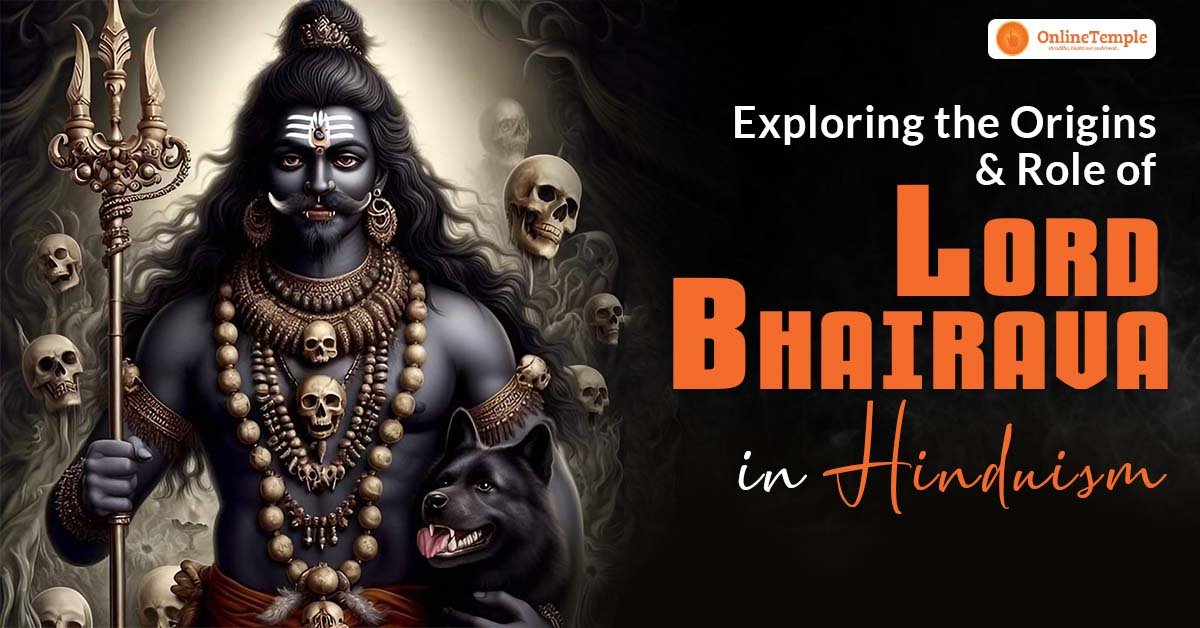In Hindu mythology, Kaal Bhairava is a powerful deity. He represents Lord Shiva’s intense and protective aspects. This manifestation of Shiva is admired by many devotees across India and beyond. He inspires both amazement and devotion. It is important to understand Kaal Bhairava’s role for devotees. However, his worship and significance illustrate the broader cultural practices. He is frequently associated with beliefs regarding time, death, and protection. His participation in various rituals demonstrates his significance in daily religious life. You can visit Onlinetemple.com, to book Puja Samagri Online and learn about all Hindu traditions and customs.
Origins of Kaal Bhairava
Kaal Bhairava originated in ancient Hindu scriptures. This is particularly mentioned in the Puranas and Tantras. These texts describe Kaal Bhairava as a fierce version of Shiva. He is created to restore cosmic order. Shiva’s wrath gave rise to Kaal Bhairava, the same story Shiva Purana tells us. He was made to punish Brahma for his arrogance. This act of divinity highlights the deity’s role in enhancing morality.
Kaal Bhairava’s creation story is more than a divine rage story. It’s also a balance of power and humility. The story illustrates that cosmic laws must be followed. If this doesn’t happen in the right order, then there will be some consequences associated with it. This aspect of Kaal Bhairava’s origin showcases his role as a guardian of sacred spaces. He is a further protector from malevolent forces. His connection to ‘Kaal,’ establishes him as a deity who goes beyond boundaries. He embodies the cycle of creation and destruction. He is represented in various rituals and iconography. His depiction holding a trident and a severed head. Further, shows his control over life and death. In addition, you can also find pandits for puja online at onlinetemple.com. Here, you participate and learn about different god-origin stories to bring new perspectives and meaning into your life.
Rituals and Religious Practices
Kaal Bhairava’s worship gives devotees a sense of reverence. There are a lot of series of rituals are invoked to protect and transform power. The cleaning ritual is the first step to worshiping him. It is very important to purify yourself before indulging in the whole process. They purify themselves with water and dress in clean clothes. This symbolizes the removal of impurities. It also shows the devotee’s fresh start. This act of purification is not only physical, however, it symbolizes spiritual purification. It prepares the devotee’s mind and soul.
After purification, devotees usually present some items to Kaal Bhairava. Each has its own significance. Flowers are popular offerings and Incense sticks cleanse the air and surround it with divine energy. These offerings help with meditation and focus. It further allows devotees to connect more deeply with Kaal Bhairava. Chanting is a key component in his worship.
Devotees use Kaal Bhairava Ashtakam mantras. This offering helps to get his blessings and protection. These chants are often repeated in cycles. It makes the devotee’s mind with peace and connects with divine energy. This is good for inner peace and strength. The repetition of mantras is thought to produce vibrations. It increases the devotee’s spiritual impact of worship. Finally, offerings ‘Prasad’ to others, are another important aspect of the ritual. Devotees serve a variety of foods, such as sweets, fruits, and rice. This was further distributed to the worshippers. This act will give a sense of community. However, it also represents Kaal Bhairava’s blessings to his followers.
Sum Up
Finally, the significance of Kaal Bhairav Jayanti is very important to devotees. It is a widely celebrated festival. Devotees celebrate this occasion with fasting and performing special pujas. Temples are decorated with oil lamps. The air is filled with divine energy. Finally, to perform such puja and chanting mantras, you could go to Onlinetemple and Book Online Pujas Services to acquire a fresh viewpoint on Hindu heritage and customs.
Also Read About: Worshiping Lord Kaal Bhairav: Benefits of Kaal Bhairav Anushthan

